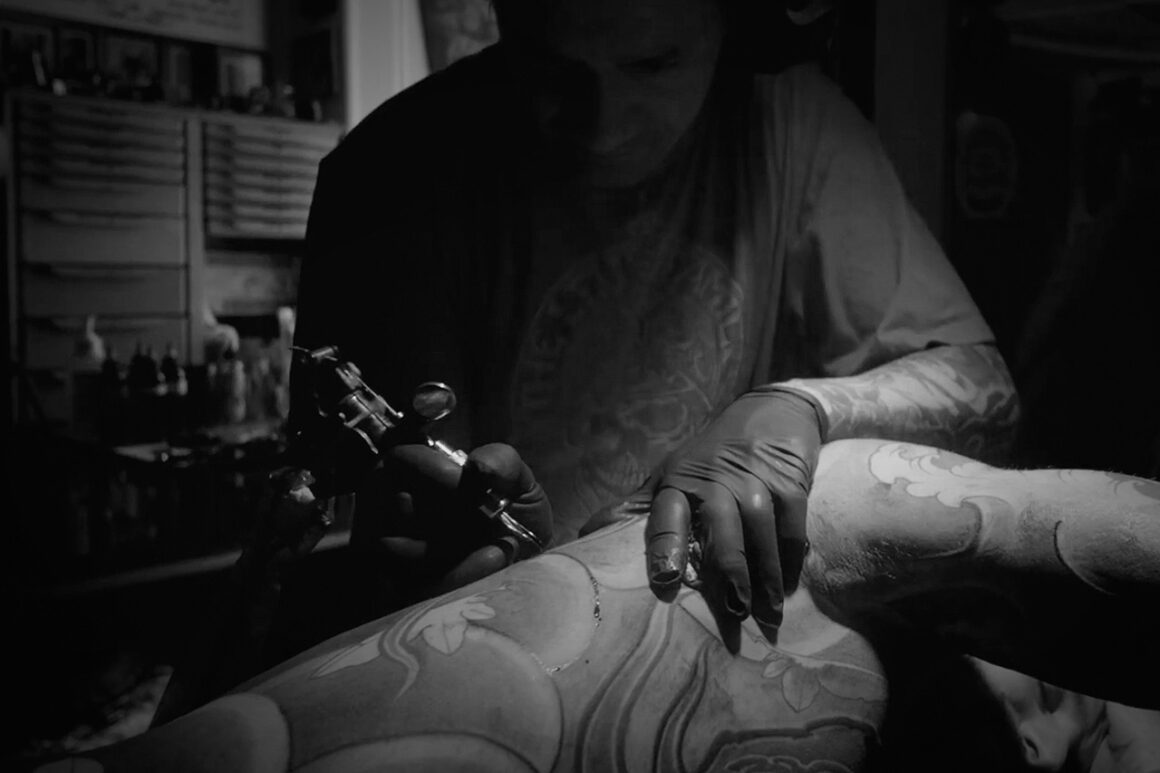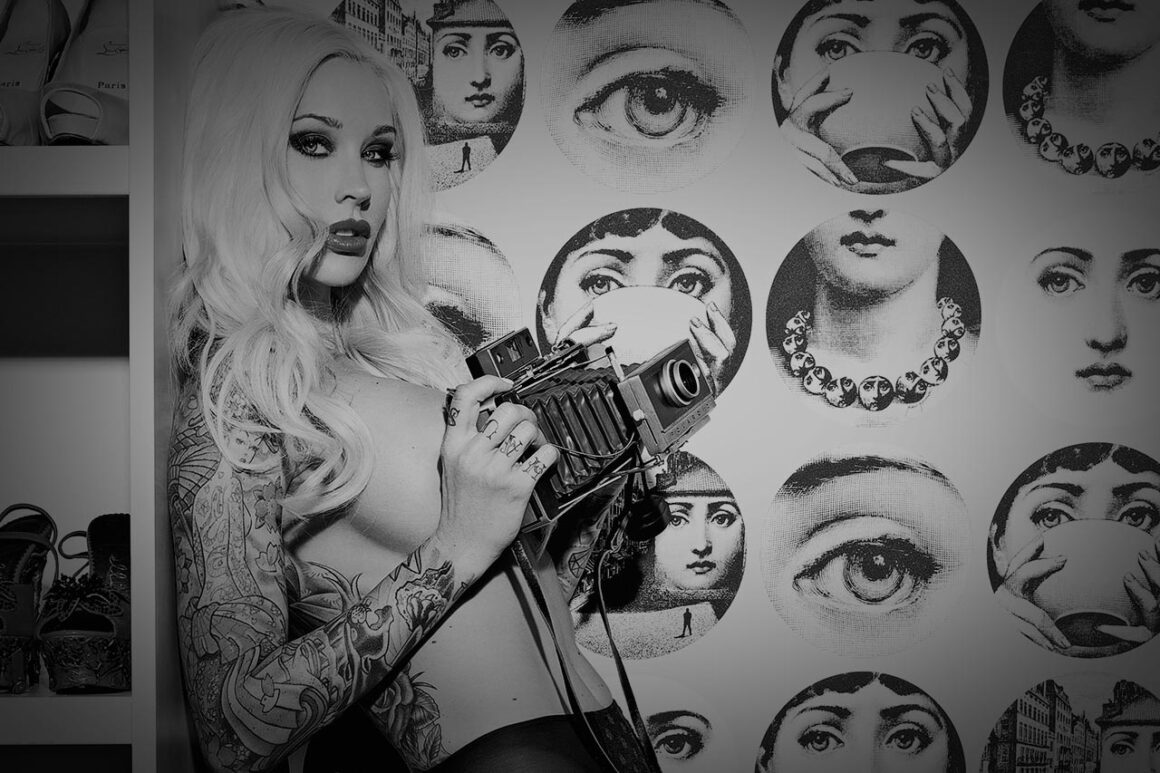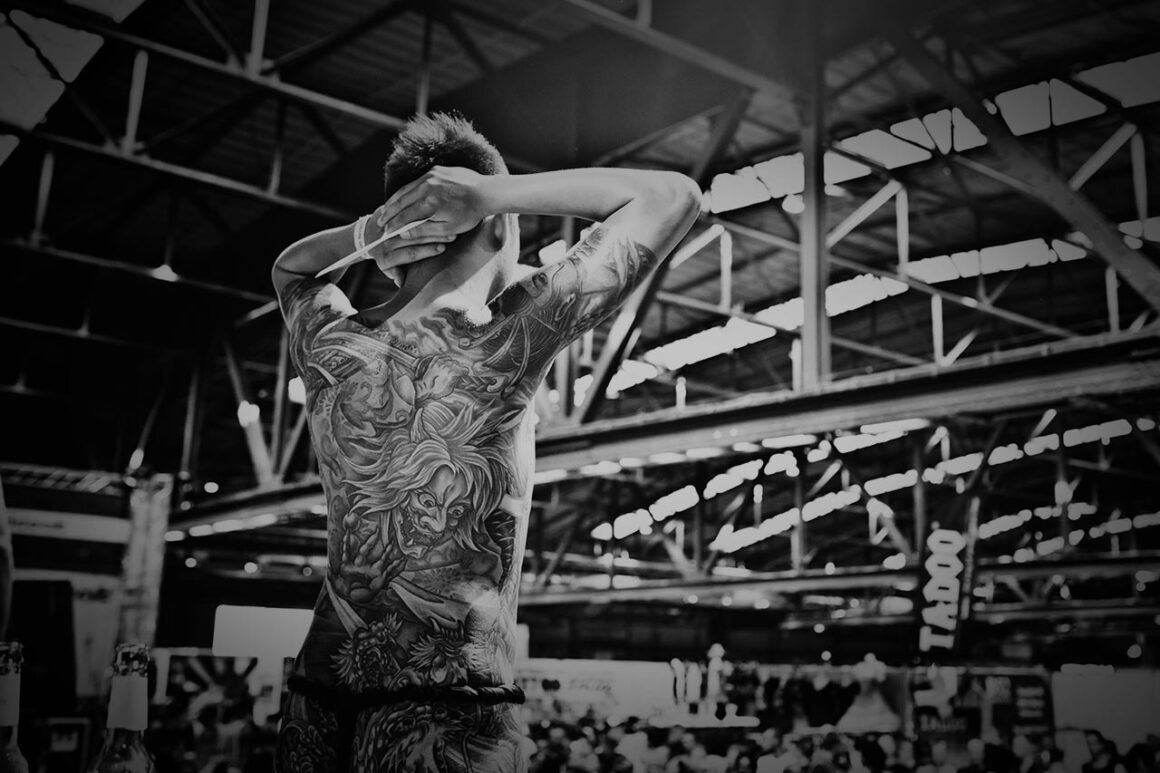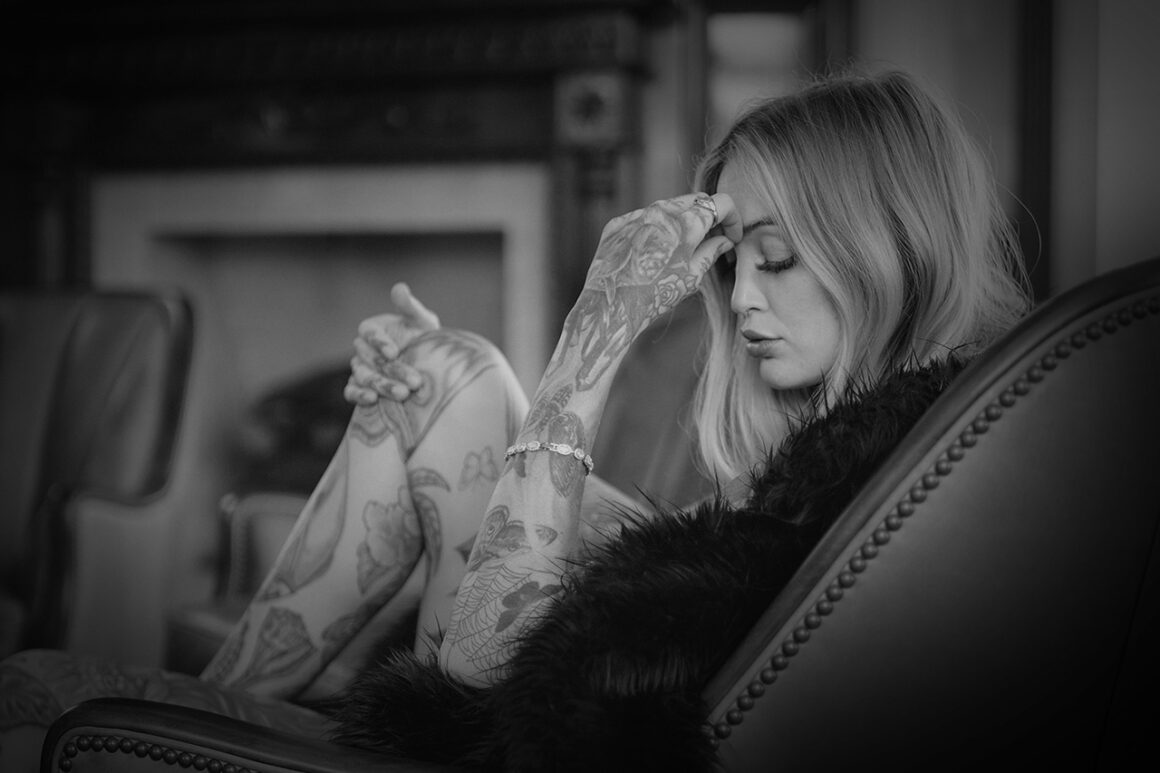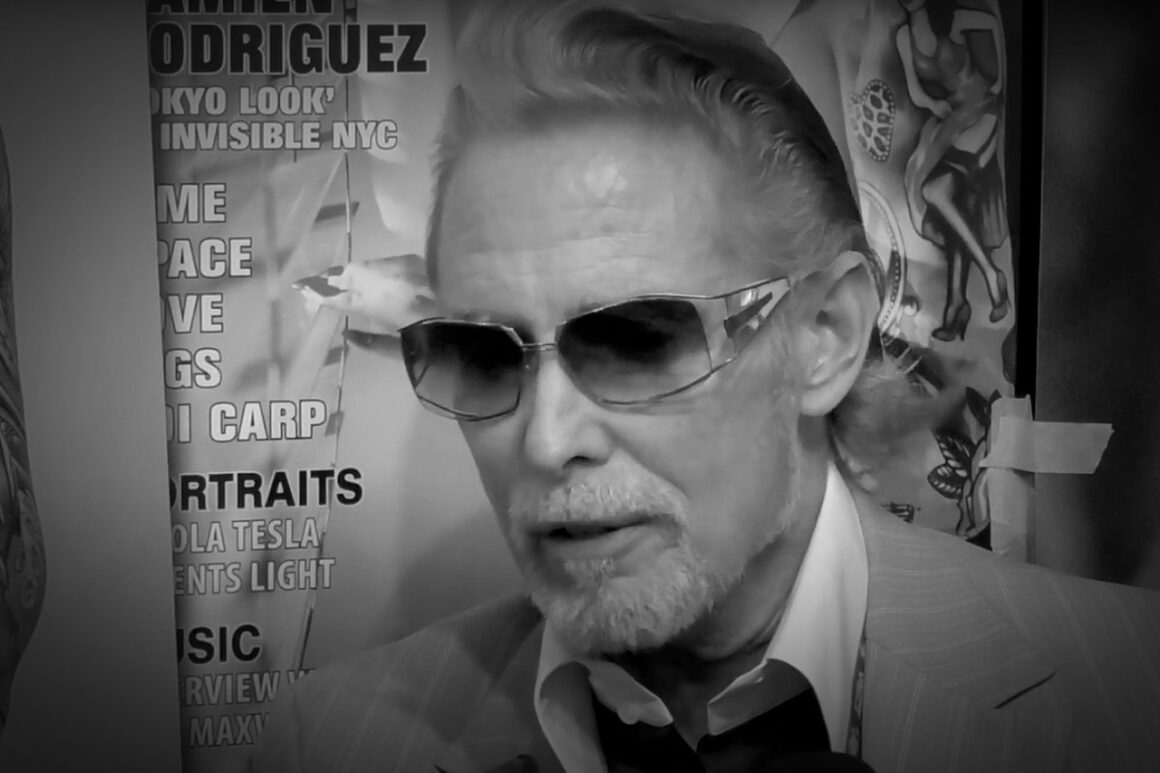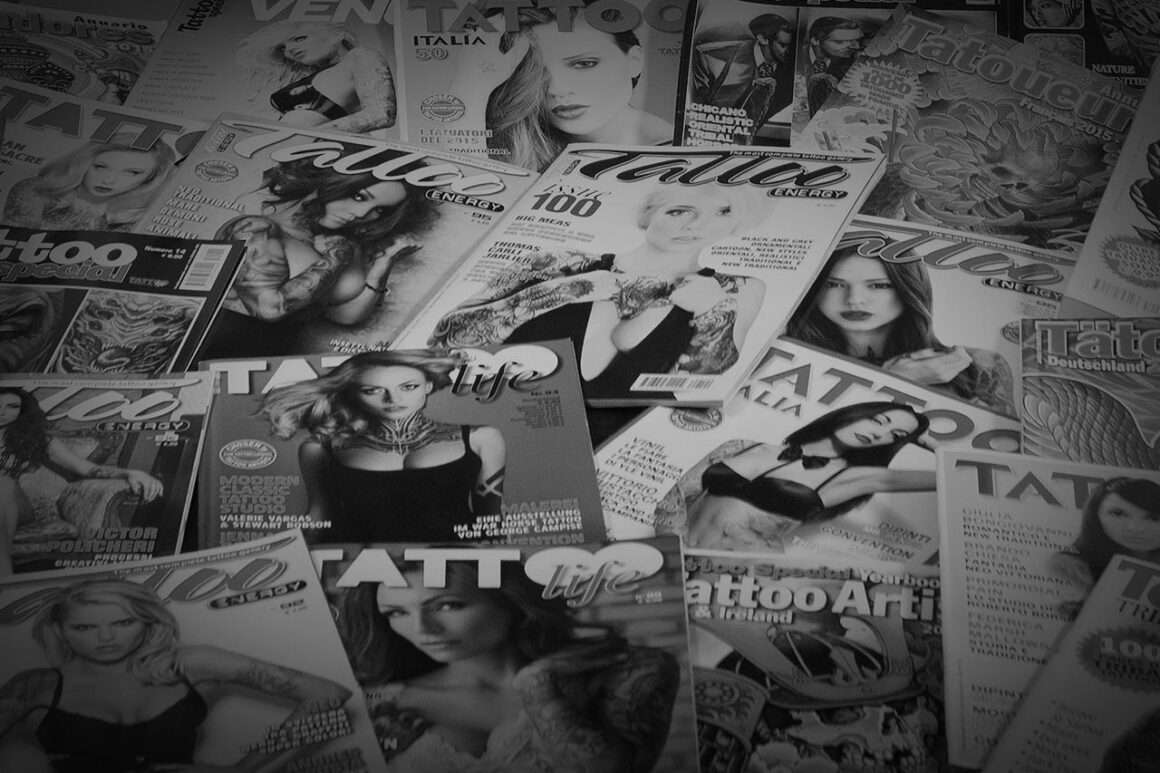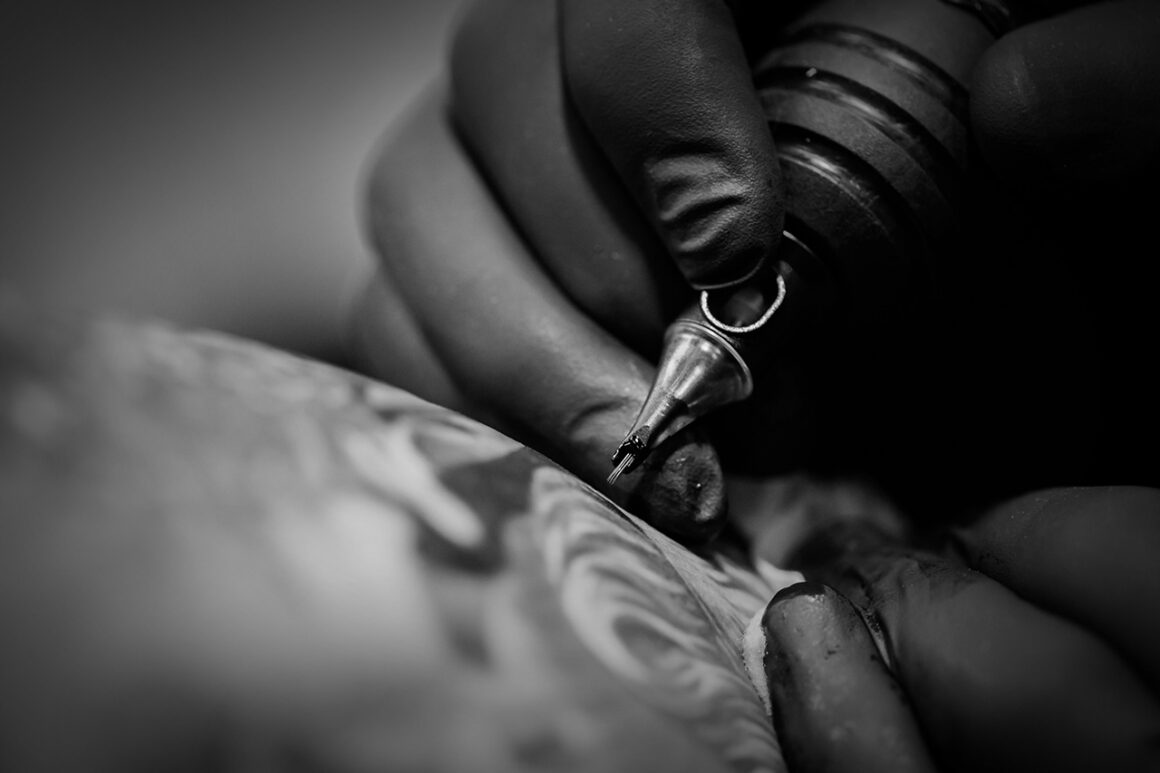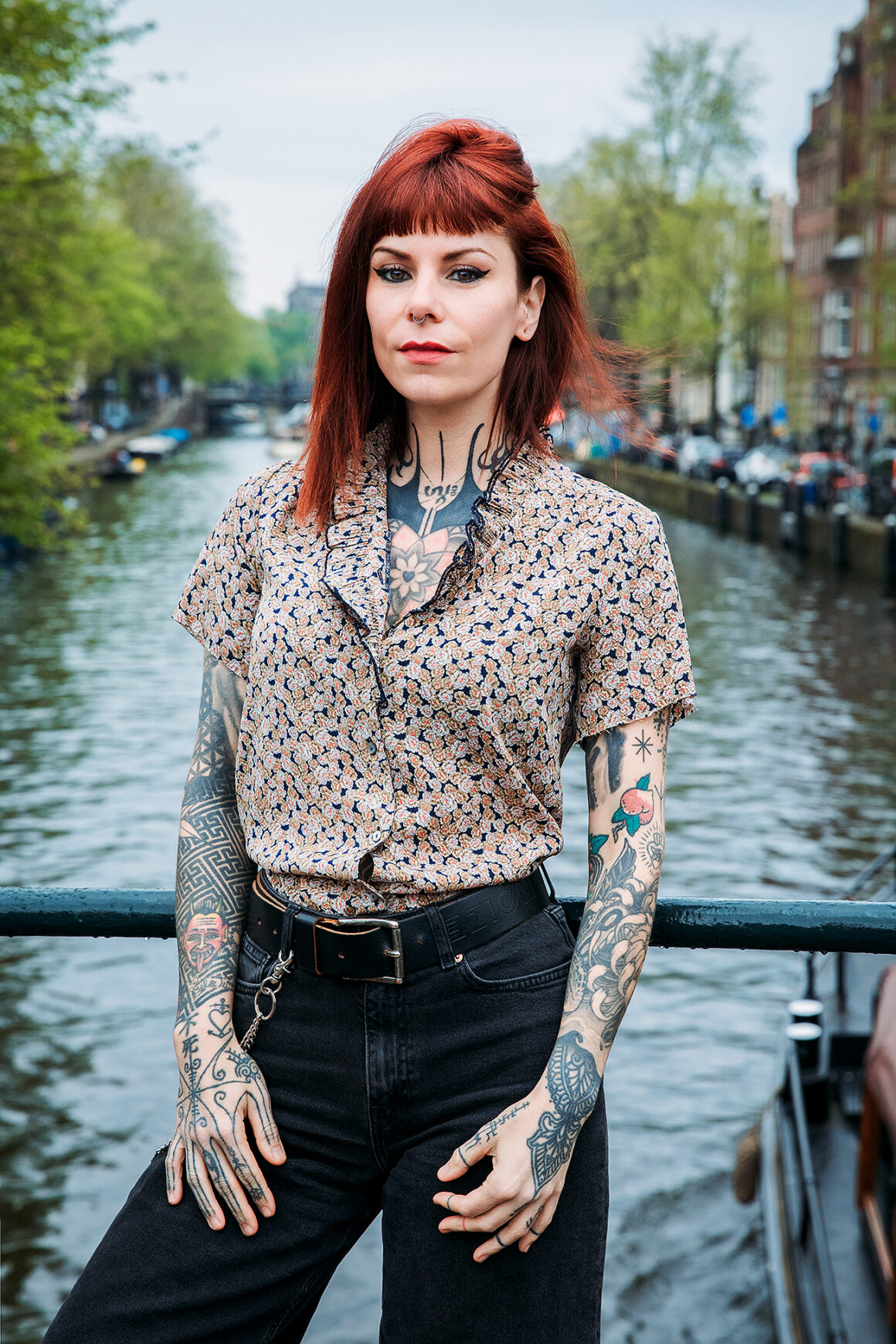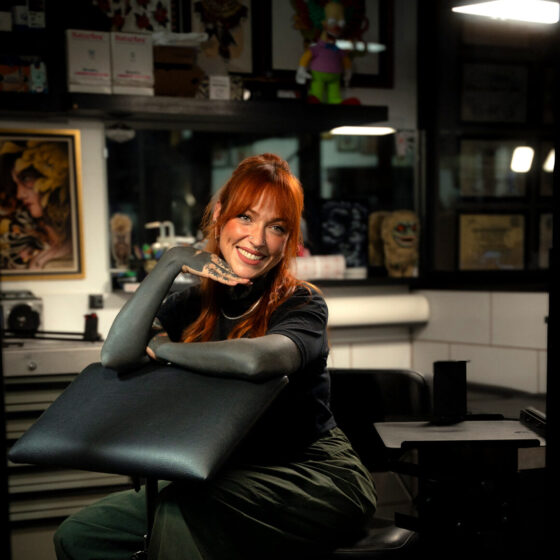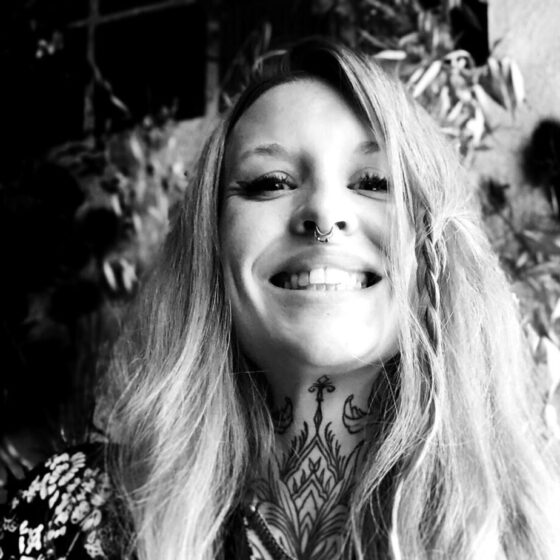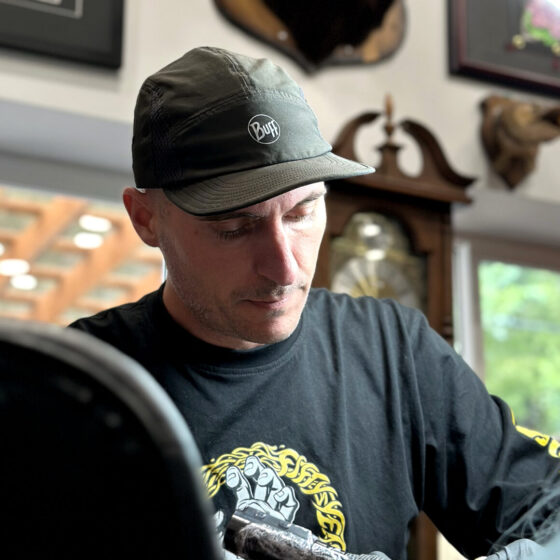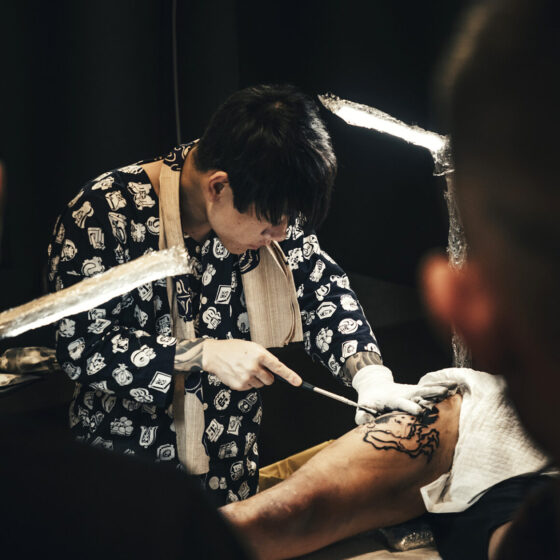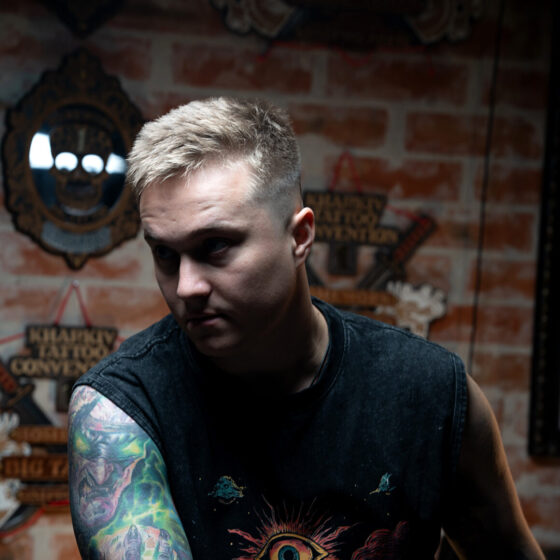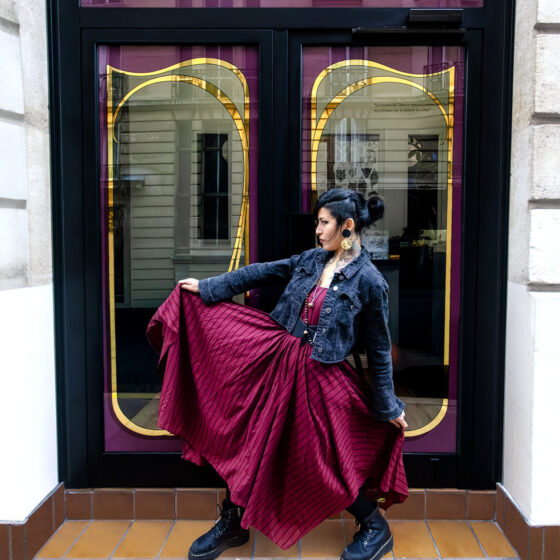She works both in Italy and Holland. Her artistic heart resides in Florence but her “Hand Poked” technique has already conquered both Amsterdam and Utrecht.
Valentina, many people dream of becoming a tattoo artist since adolescence. Becoming a tattoo artist who only uses needle and ink, in the context of the “Hand Poked” technique, is something slightly different in terms of approach and subsequent artistic upgrade?
My artistic upgrade process started in the shop around 2008, where I learned Traditional tattoo techniques, like many machine tattoo artists. This gave me a solid base to start from.
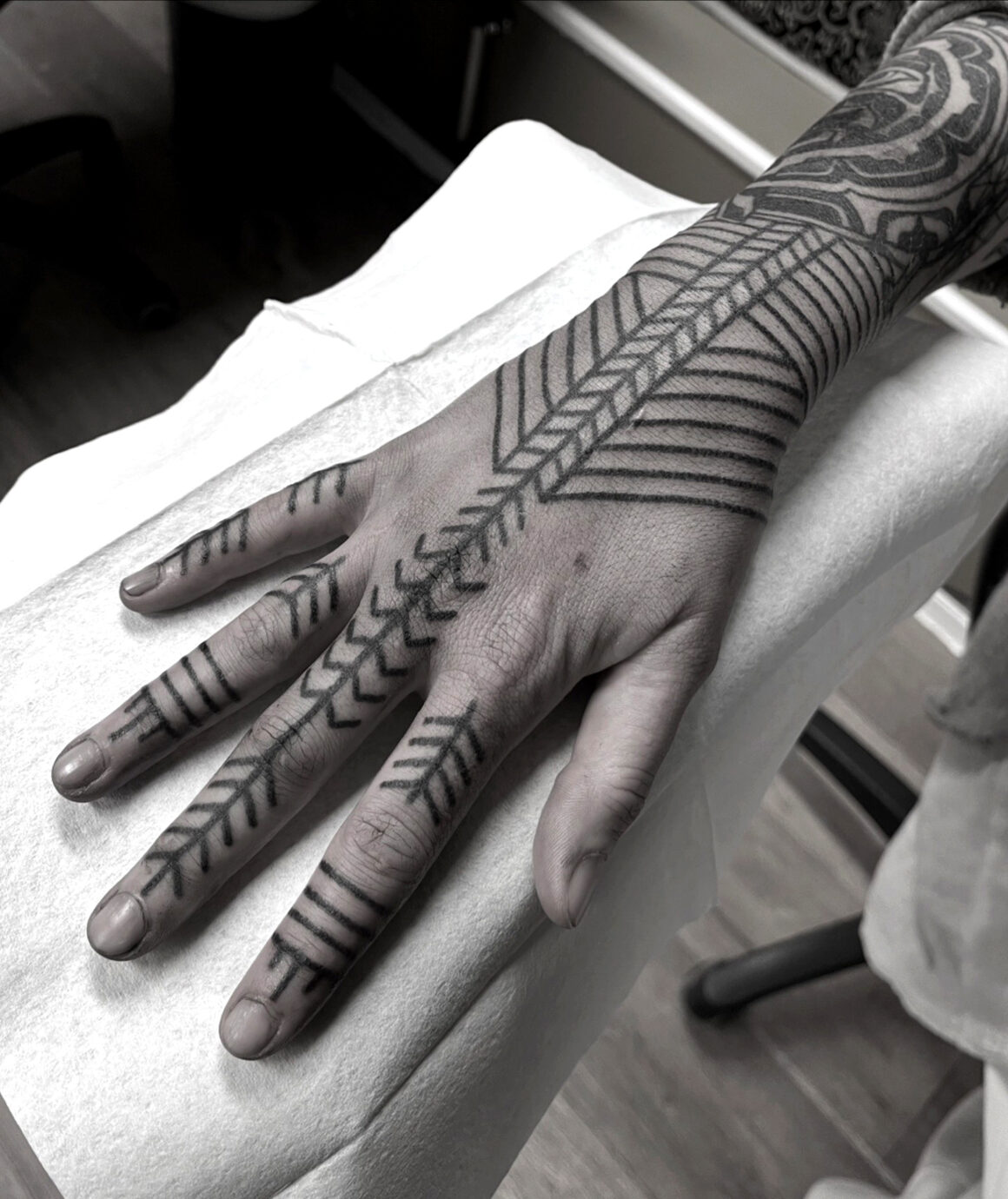
The transition to the “Hand Poke” technique was a conscious choice, which allowed me to explore a completely different approach, slower and more meditative, but also more intimate. Tattooing by hand, without the aid of the machine, gave me a new vision of the art of tattooing, allowing me to connect in a different way with the skin and with the cultural and symbolic meanings that I bring into my work.
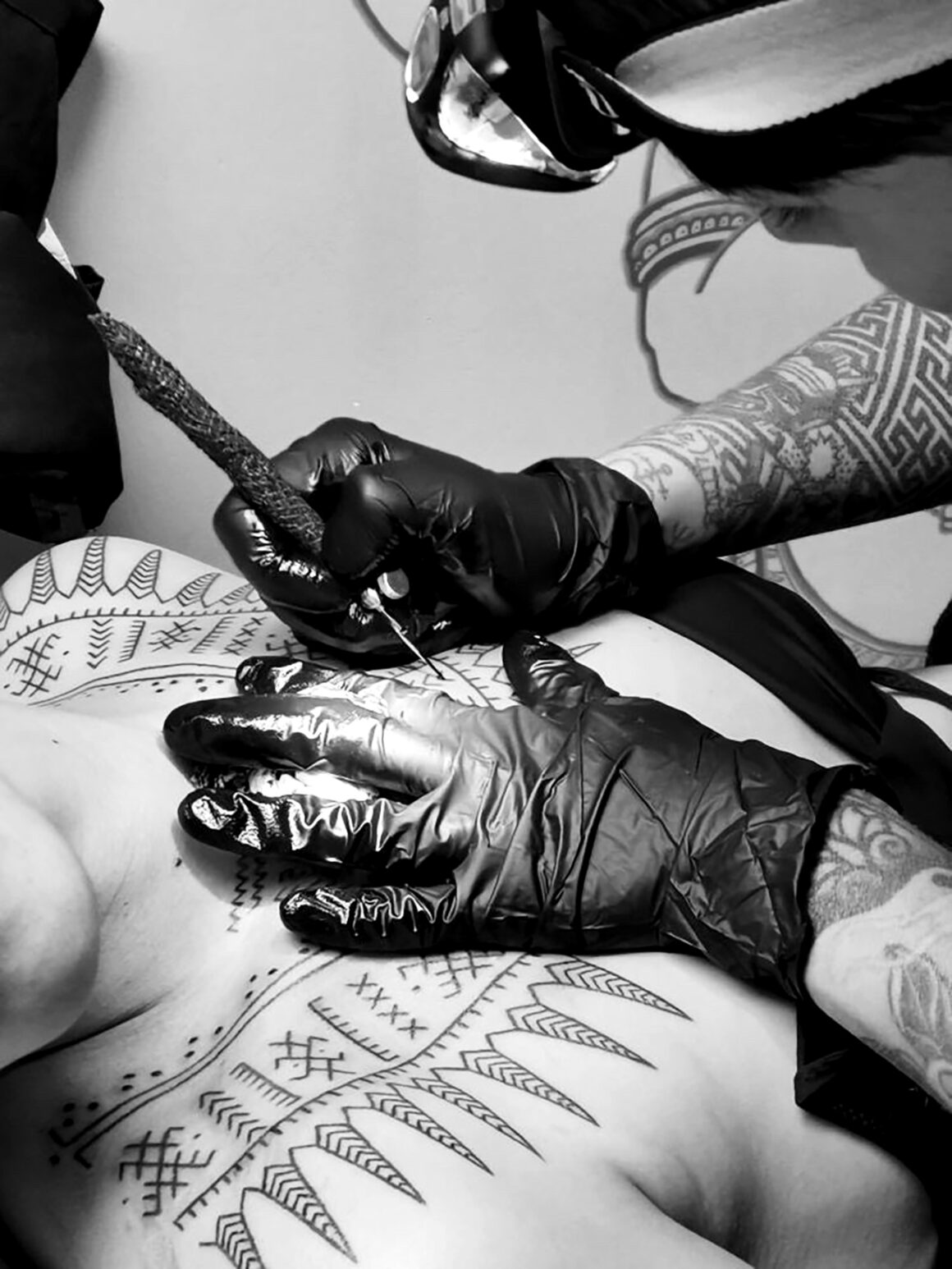
Do you consider yourself a self-taught tattoo artist, who has learned only through books, manuals, magazines and experience in the field, or did you go to a “workshop” with some master of this technique?
I do not consider myself a completely self-taught tattoo artist, because my path has been a mix of on-the-job training, practical experience and direct research. I worked in a shop for many years, where I learned the basic techniques and fundamentals of the trade.
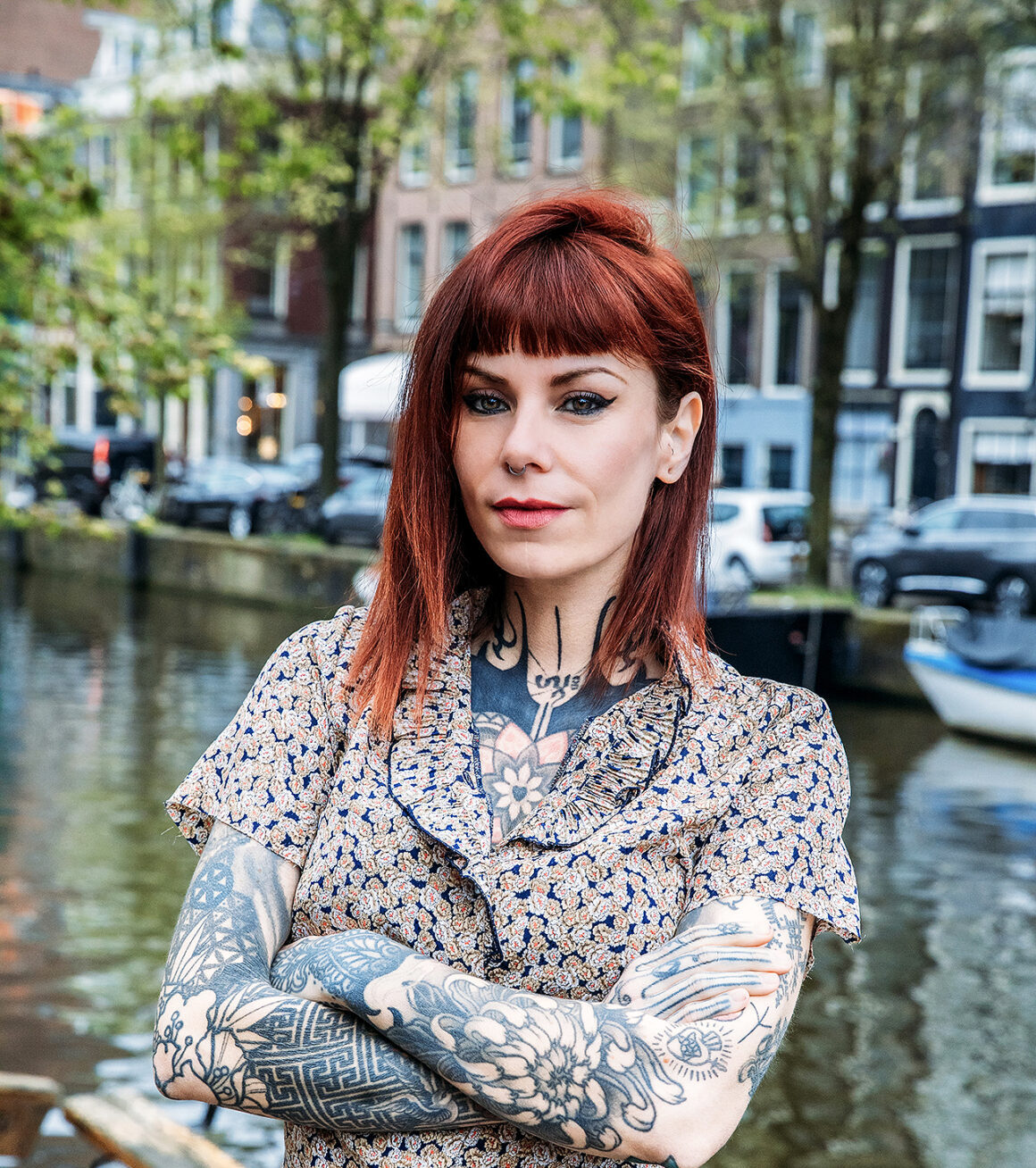
However, my evolution as a tattoo artist has also been significantly influenced by being part of the organization of an important event, aka the Florence Tattoo Convention since 2008, where I had the opportunity to come into contact with great tattoo artists from different cultures.
This has allowed me to observe and learn from those who work with Traditional techniques, but also to get tattooed and ask direct questions.
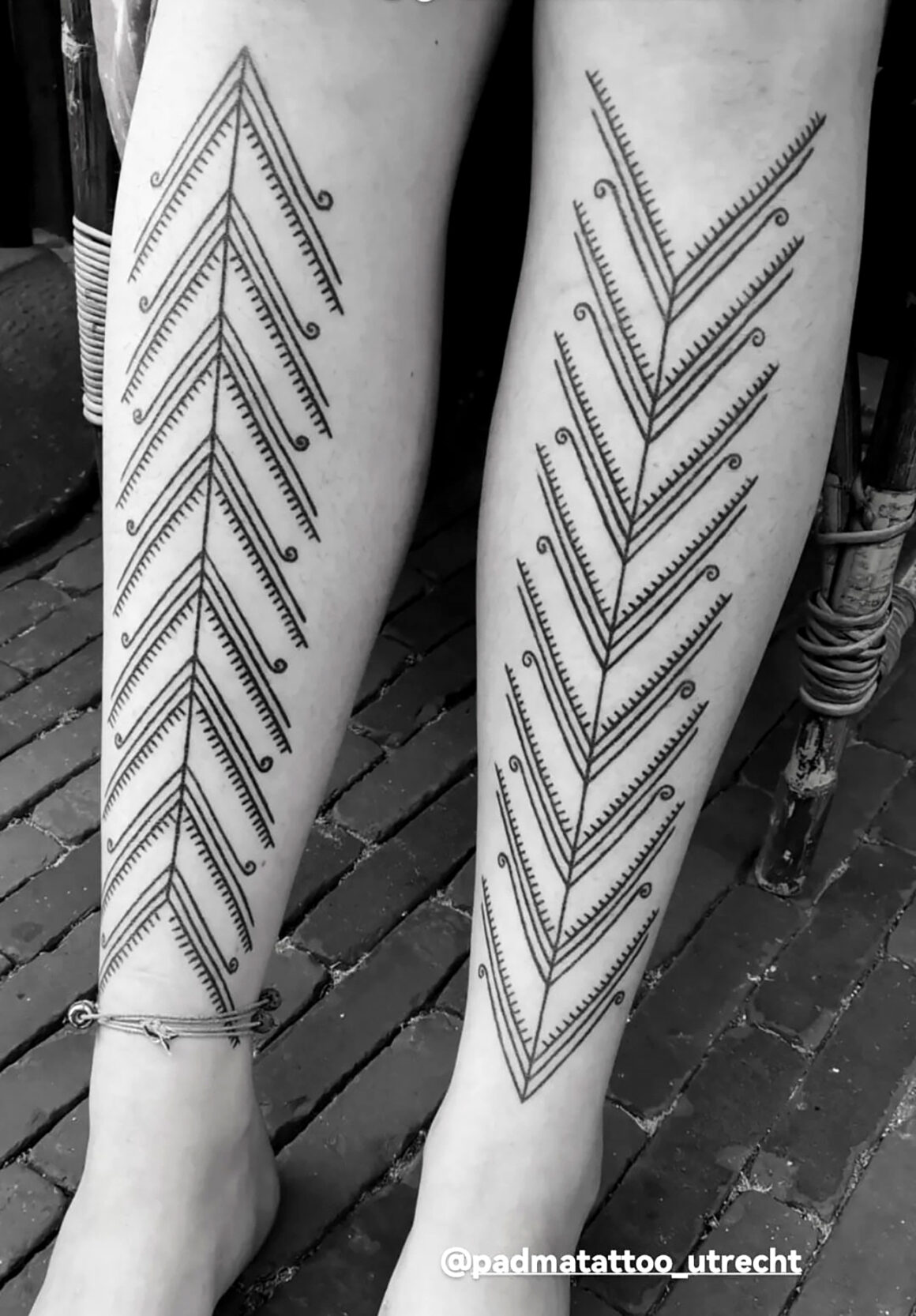
Did your travels help you?
My travels have been essential for my professional and personal growth. I have traveled to different parts of the world, many times to Thailand, Borneo, Laos, Malaysia to get in touch with tribal and indigenous cultures studying in the field the meanings and symbolisms of tattoos near friends and researchers such as the cultural anthropologist Lars Krutak.
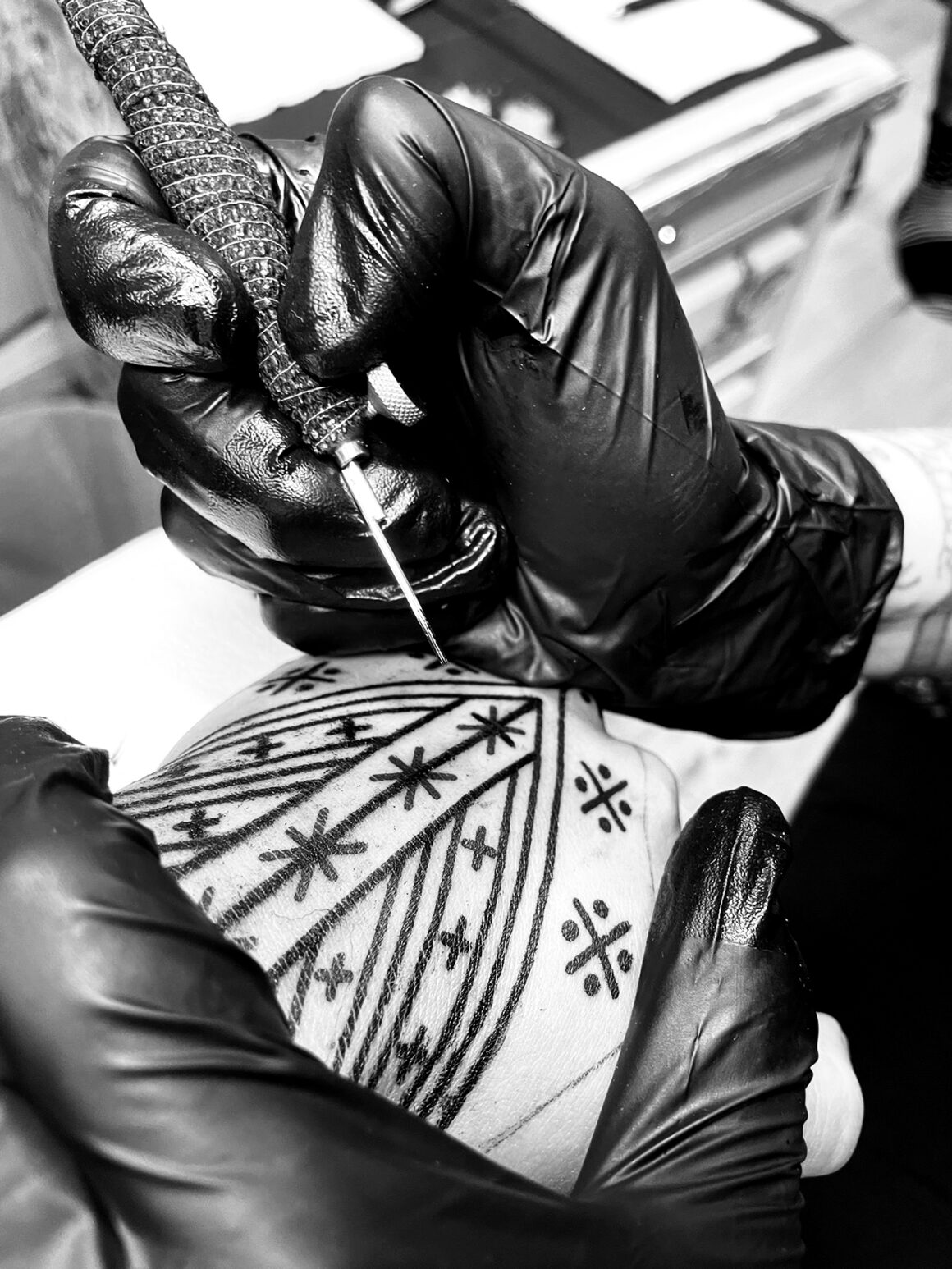
Each trip has allowed me to collect stories and teachings that intertwine with my practice, leading me to know the roots of a tradition that is not only aesthetic, but also identity and spiritual. This combination of direct experience, travel and organization of events such as the convention in Florence has helped me grow both as a tattoo artist and as a researcher, allowing me to explore tattooing from multiple angles – from technique to its anthropological dimension, from art to culture.
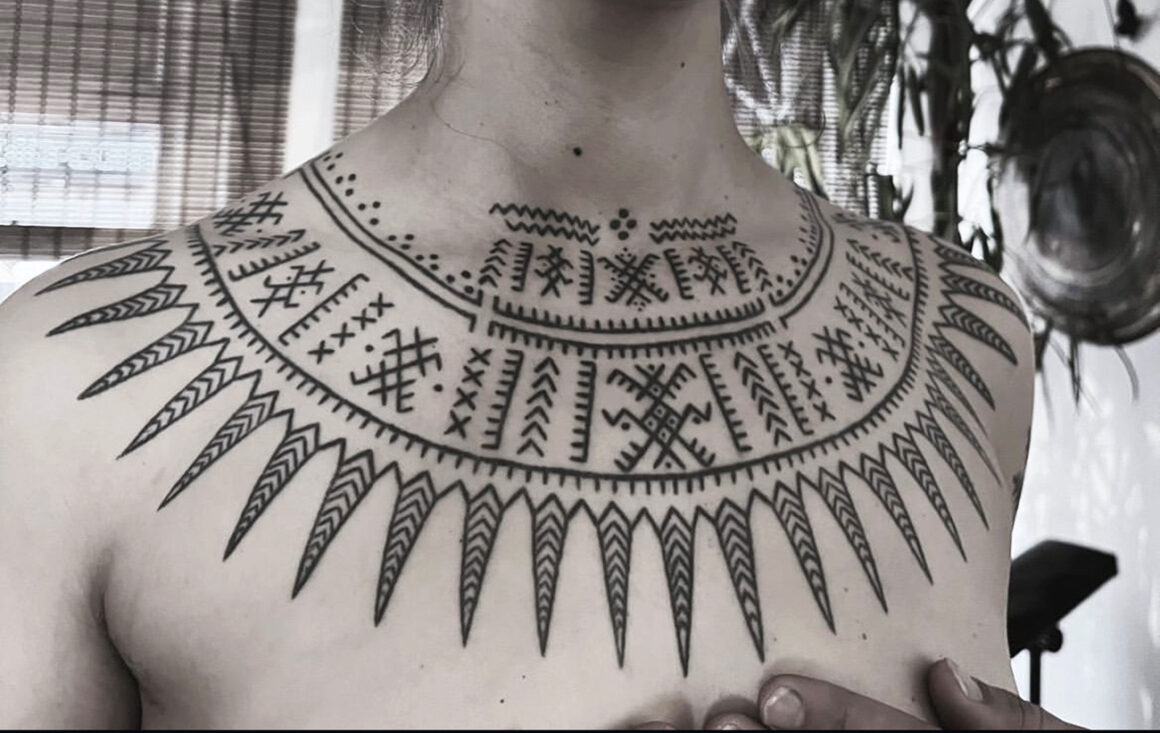
When you tattoo traditional tribal designs, do you faithfully reproduce the original signs, or do you also like to create your own variations? I mean, something that comes directly from your personal interpretation…
In my practice, the approach to Traditional subjects linked to tribal communities is based on a conscious balance between iconographic fidelity and artistic reworking. When I work with symbols belonging to original cultures, I adhere to a respectful methodology, which involves the study of the socio-cultural context, ritual functions and original meaning of the sign.
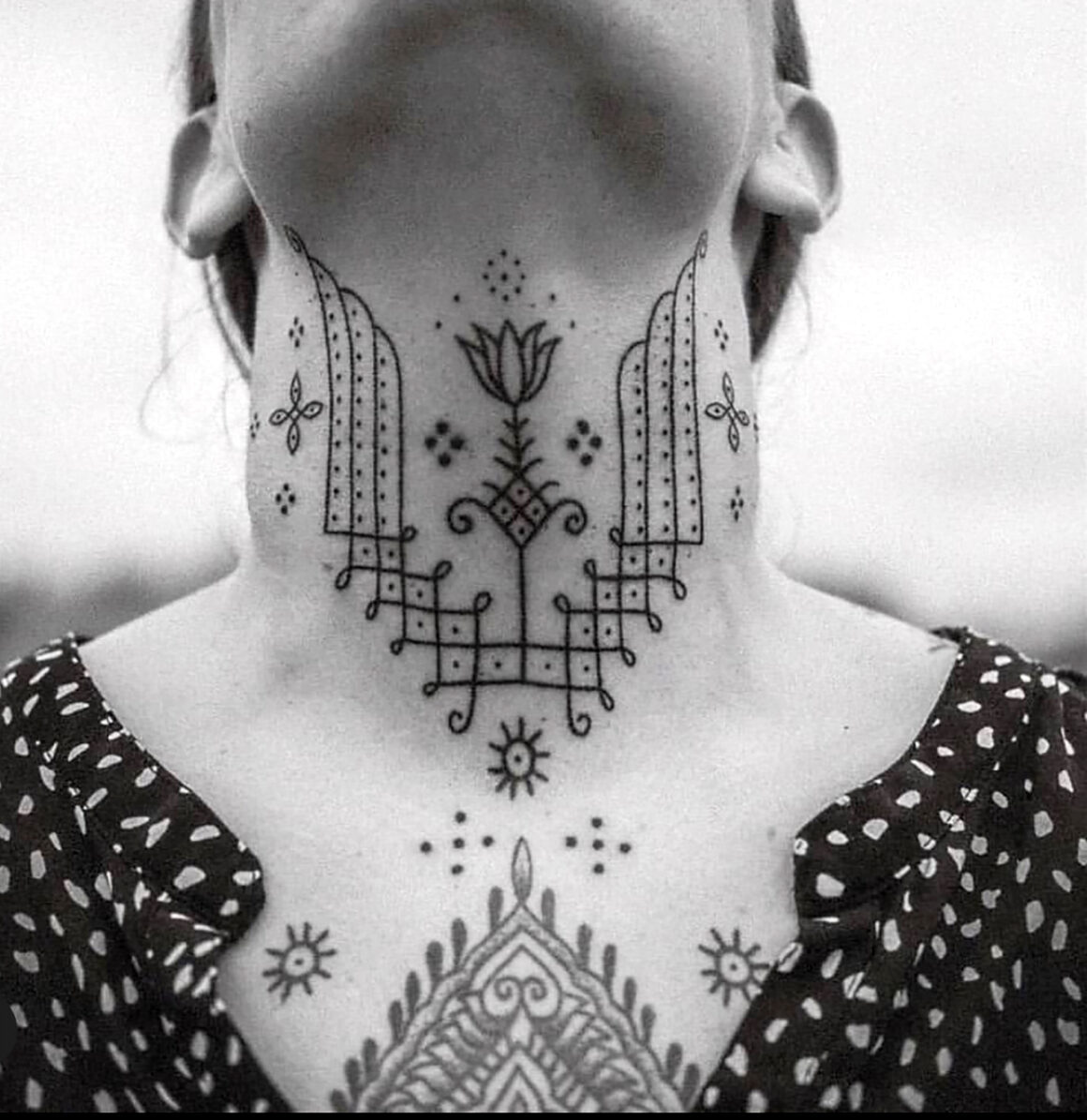
In some cases, reproduction is necessary to preserve the symbolic integrity of the tattoo, especially when the subject has an identity or ritual value still active in the culture of origin. However, in my work there is also an interpretative and creative, ornamental dimension that leads me to develop new signs – not imitative – that can dialogue with the contemporary experience of the person who will wear them. This process is halfway between artistic practice and applied anthropological research, where the tattoo becomes both a means of individual expression and a tool for cultural connection.
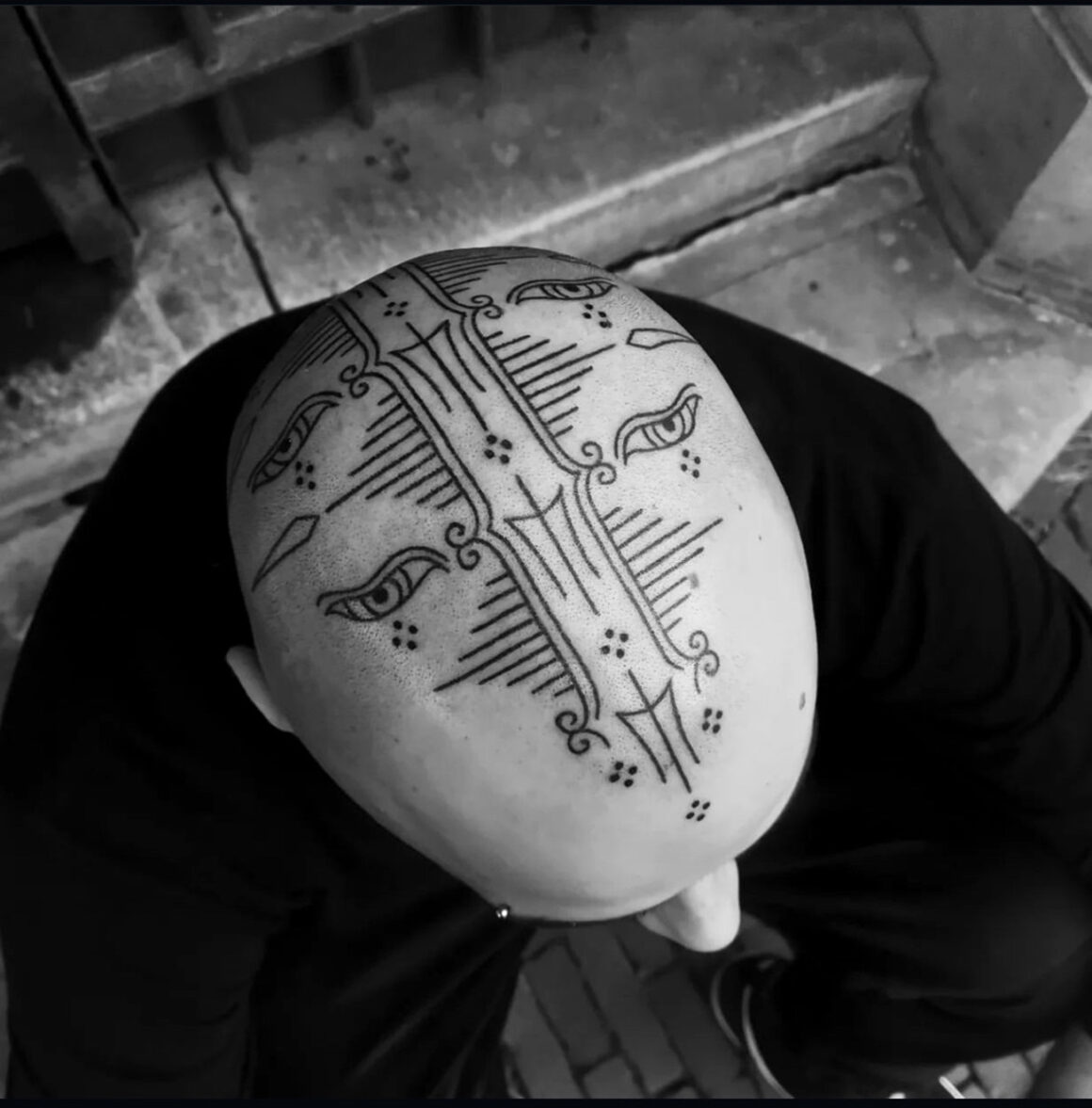
I read that you work better with music. Is that true?
Yes, I absolutely confirm! Music is a fundamental element in my creative process. When I work, it helps me enter a state of flow and concentration, which is essential for me. Music allows me to connect more deeply with the tattoo I am creating, creating an atmosphere that promotes meditation and reflection. As for the genre, I am particularly fascinated by post-punk and almost everything from the 80s, especially new wave. Artists like The Cure, Joy Division, Siouxsie and the Banshees or Depeche Mode are often in my playlists. This type of music, with its mix of atmosphere and intensity, helps me to stay focused and connected.
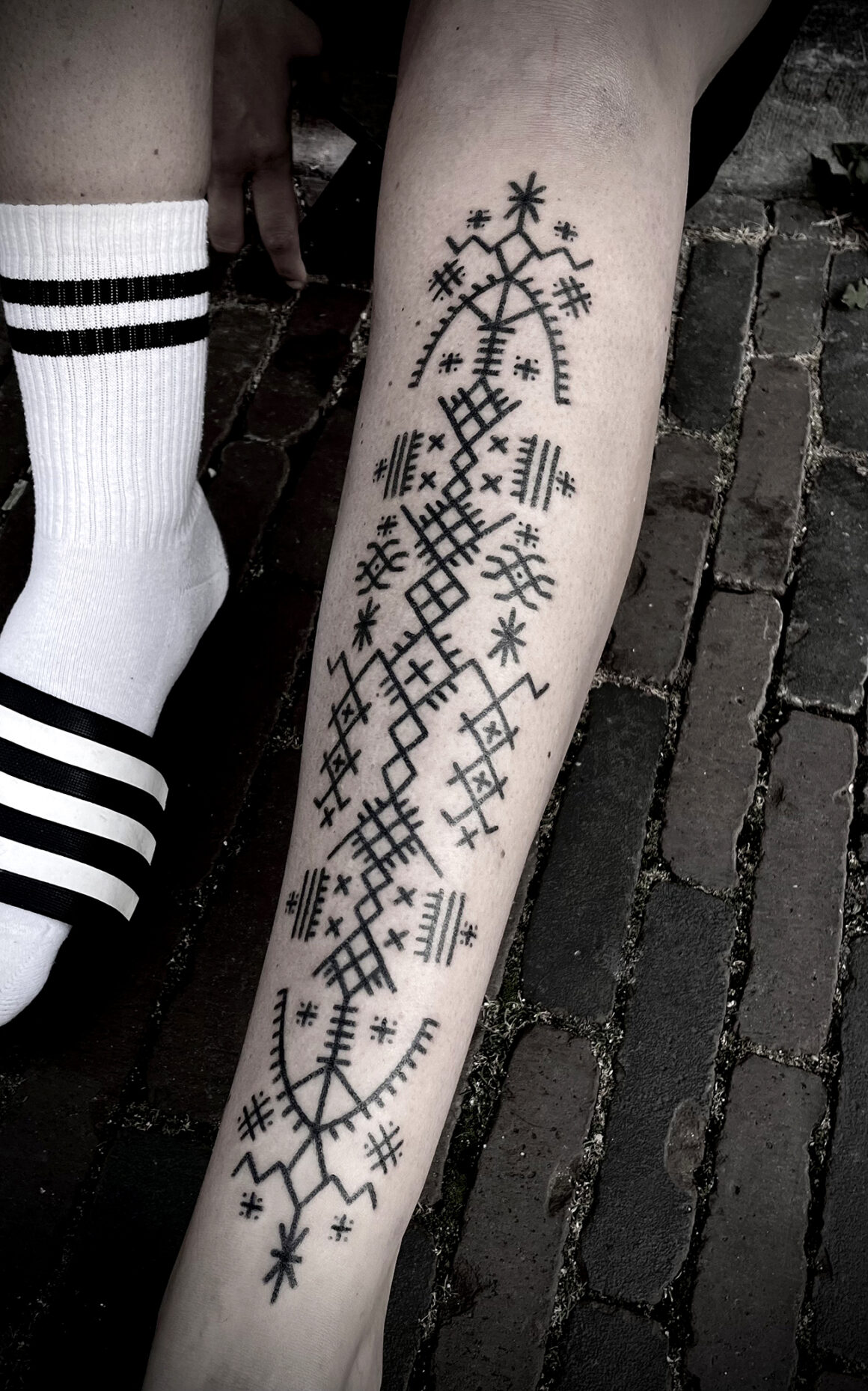
You’re from Florence, but I’m not sure if you also have a private studio there, or if your main base is in Holland at ‘Padma Tattoo’ in Utrecht?”
I currently live in Amsterdam, but I frequently travel back and forth between Florence and Holland. My go-to studios are ‘Rose Tattoo’ in Amsterdam (IG: @rosetattooamsterdam), where I get inspired and collaborate with incredible artists such as Danny Boy (IG: @dannyboytattooing), Bill Loika (IG: @the_real_bill_loika), Joris, Gioia, and Mauro Mejia (IG: @don.banetone). Every week I also travel to Utrecht, where I work at Chris Niessink’s (IG: @chris_inktattoo) amazing ‘Padma Tattoo’ studio (IG: @padmatattoo_utrecht). This studio, located in the heart of the city, is a true point of reference for international artists, and hosts guest artists of the caliber of Florencio Rojas (IG: @florenciorojas). Florence is still my city, but my professional activity is very tied to both of these places, with a strong connection between Italy and Holland.
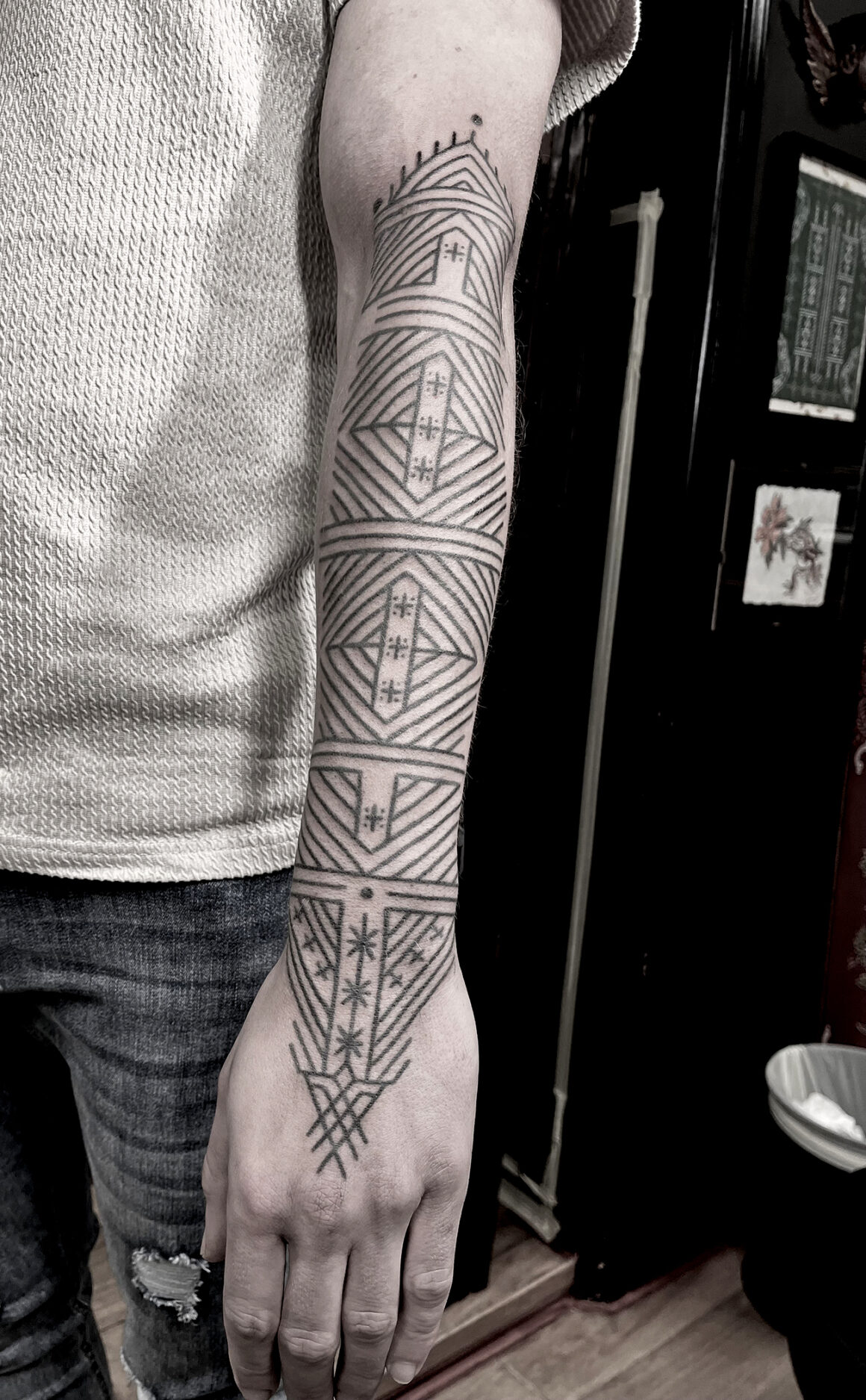
What is your relationship with this historical era? Do you feel comfortable in 2025 or, if they invented a time machine, would you use it to move to another century?
My relationship with this historical era is a bit mixed. On the one hand, I feel very comfortable in 2025, especially thanks to the opportunities that technology offers and the possibility of connecting with different cultures and traditions through my work. The anthropological research that I do and the art of tattooing, which are so rooted in history and tradition, allow me to always be projected into the past, while living in the present. If they invented a time machine, however, I think I couldn’t help but browse through other eras.
I’m particularly fascinated by the medieval period and ancient tribal civilizations, where tattoos had a deep meaning linked to spirituality and group identity.
But, in the end, I think 2025 is just the right place for me, because it allows me to live in the present, exploring the past and trying to give new meaning to traditions that have spanned centuries.
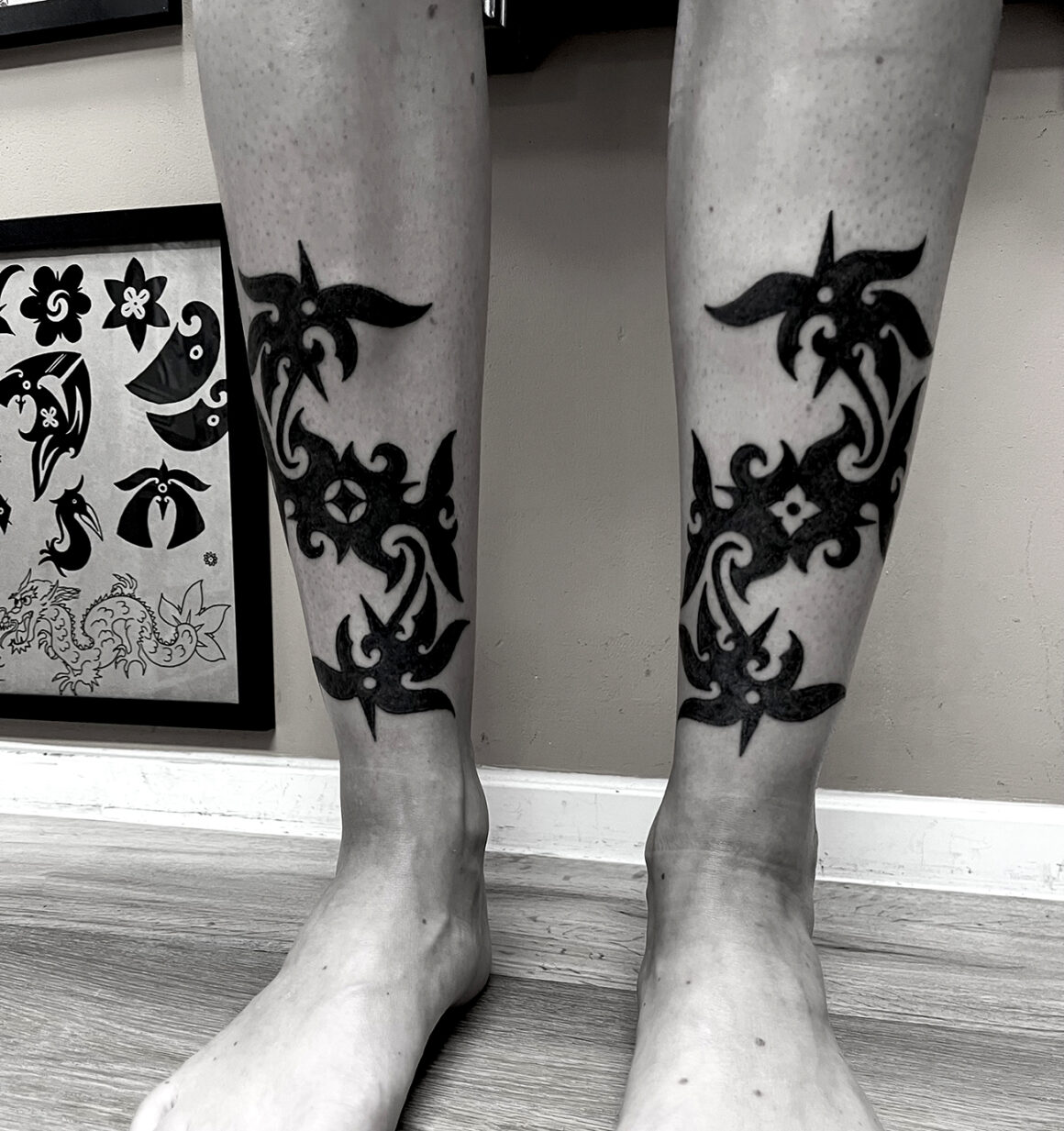
And your famous last words are… ?
Change outside to change inside!
